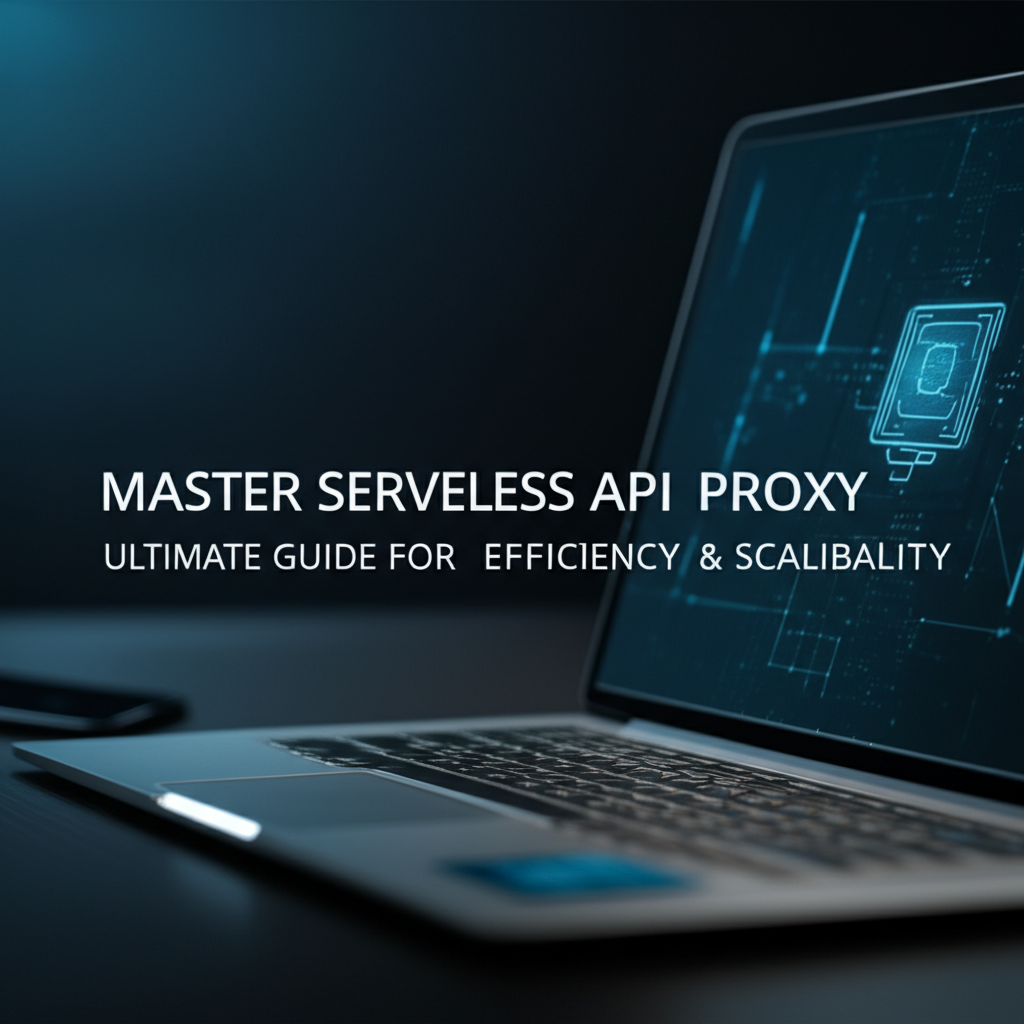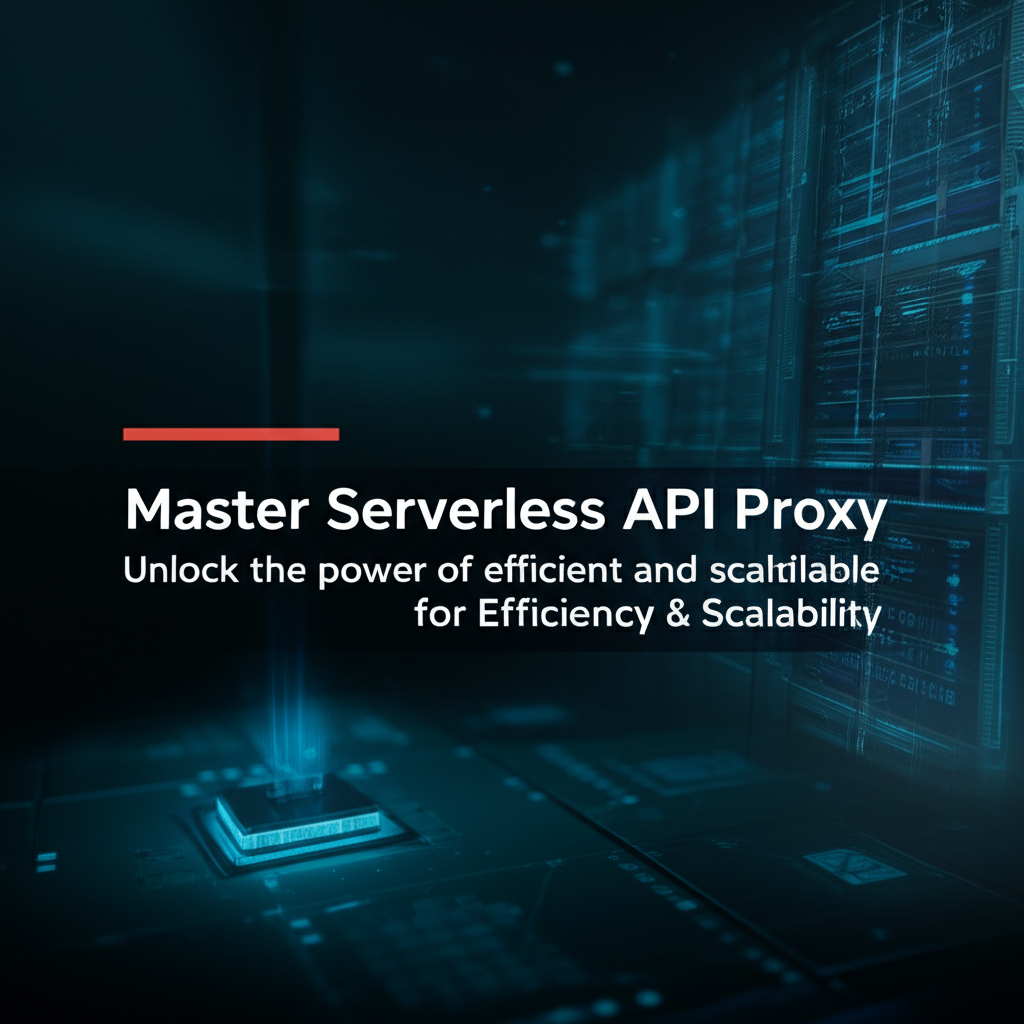Master Serverless API Proxy: Ultimate Guide for Efficiency & Scalability

Build AI Agents With Incredible MCP
Introduction
In the rapidly evolving landscape of cloud computing, serverless architectures have become a cornerstone for businesses aiming to enhance agility and reduce operational costs. One of the key components of serverless architectures is the API proxy, which serves as a critical bridge between external clients and serverless functions. This guide delves into the intricacies of serverless API proxies, focusing on their efficiency and scalability. We will explore the Model Context Protocol (MCP), the serverless API proxy platform, and how it can revolutionize your cloud operations.
Understanding Serverless API Proxies
What is a Serverless API Proxy?
A serverless API proxy is a service that acts as an intermediary between clients and serverless functions. It simplifies the process of creating, deploying, and managing APIs without the need to provision or manage servers. This proxy handles the routing of incoming requests to the appropriate serverless function, providing a seamless experience for both developers and end-users.
Benefits of Serverless API Proxies
- Scalability: Automatically scales based on demand, ensuring high availability and performance.
- Simplicity: Reduces the complexity of API management by abstracting away the underlying infrastructure.
- Security: Offers built-in security features like authentication and authorization.
- Cost-Effective: Pay only for the resources used, making it an affordable option for businesses of all sizes.
The Role of MCP in Serverless API Proxies
What is MCP?
Model Context Protocol (MCP) is a cutting-edge protocol designed to facilitate seamless communication between AI Agents and various data sources and tools. It enables rapid integration of real-world data into AI systems, enhancing their decision-making capabilities.
How MCP Enhances API Proxies
- Faster Performance: MCP reduces the time required for AI Agents to connect with data sources, improving overall performance.
- Lower Costs: By streamlining the integration process, MCP helps businesses save on development and maintenance costs.
- Superior User Experience: MCP ensures that AI Agents can access and process data efficiently, leading to a better user experience.
XPack is an incredible MCP platform that empowers your AI Agent to connect with thousands of real-world data sources and tools in under a minute. Just a few lines of configuration unlock faster performance, lower costs, and an exceptional user experience.Try XPack now! 👇👇👇
Choosing the Right Serverless API Proxy Platform
Factors to Consider
- Ease of Use: The platform should be user-friendly, allowing developers to quickly set up and manage APIs.
- Scalability: The platform should support automatic scaling to handle varying loads.
- Security: The platform should offer robust security features to protect sensitive data.
- Integration Capabilities: The platform should integrate seamlessly with other cloud services and tools.
Introduction to X-Pack.AI
X-Pack.AI is a powerful Model Context Protocol (MCP) platform that enables AI Agents to connect with thousands of real-world data sources and tools in under a minute. It offers faster performance, lower costs, and a superior user experience with minimal configuration.
Key Features of X-Pack.AI
- Rapid Integration: Connects AI Agents to data sources and tools in seconds.
- High Performance: Delivers fast and reliable data processing capabilities.
- Cost-Effective: Offers a pay-as-you-go pricing model, ensuring that businesses only pay for what they use.
- Minimal Configuration: Reduces the complexity of setting up and managing AI Agents.
Implementing Serverless API Proxies with X-Pack.AI
Step-by-Step Guide
- Sign up for X-Pack.AI: Create an account on the X-Pack.AI platform.
- Create a new API Proxy: Follow the platform's instructions to create a new API proxy.
- Configure the API Proxy: Set up routing rules, authentication, and other necessary configurations.
- Deploy the API Proxy: Deploy the API proxy to your serverless environment.
- Monitor and manage: Use X-Pack.AI's dashboard to monitor and manage your API proxy.
Best Practices
- Use environment variables: Store sensitive information like API keys in environment variables.
- Implement caching: Use caching to improve performance and reduce load on your serverless functions.
- Monitor and log: Regularly monitor and log API proxy activity to identify and resolve issues.
Case Studies
Case Study 1: E-commerce Platform
An e-commerce platform used X-Pack.AI to create a serverless API proxy that provides real-time product recommendations to customers. The API proxy integrates with the platform's inventory management system and customer data to deliver personalized recommendations, resulting in increased sales and customer satisfaction.
Case Study 2: Healthcare Provider
A healthcare provider utilized X-Pack.AI to build a serverless API proxy that connects doctors with patient records and medical data. The API proxy streamlines the process of accessing patient information, improving the efficiency of healthcare professionals and enhancing patient care.
Conclusion
Serverless API proxies have become an essential component of modern cloud architectures, offering numerous benefits for businesses of all sizes. By leveraging the power of Model Context Protocol (MCP) and platforms like X-Pack.AI, organizations can create efficient and scalable serverless API proxies that drive innovation and growth.
FAQ
Q1: What is the difference between a serverless API proxy and a traditional API gateway?
A1: A serverless API proxy is designed specifically for serverless architectures, focusing on routing and managing API requests without the need for server management. In contrast, a traditional API gateway is a more general-purpose solution that can be used in various architectural styles, including serverless and monolithic.
Q2: How does MCP contribute to the performance of serverless API proxies?
A2: MCP streamlines the integration process between AI Agents and data sources, reducing the time required for data processing. This results in faster response times and improved overall performance of serverless API proxies.
Q3: Can X-Pack.AI be used with other cloud services?
A3: Yes, X-Pack.AI is designed to integrate with a wide range of cloud services, making it a versatile choice for businesses using multiple cloud providers.
Q4: What security measures does X-Pack.AI offer?
A4: X-Pack.AI provides robust security features, including encryption, authentication, and authorization, to protect sensitive data and ensure the integrity of API proxies.
Q5: How can I get started with X-Pack.AI?
A5: To get started with X-Pack.AI, sign up for an account on the platform's website. Follow the provided documentation to create and configure your first serverless API proxy.
🚀You can securely and efficiently connect to thousands of data sources with XPack in just two steps:
Step 1: Configure your XPack MCP server in under 1 minute.
XPack is an incredible MCP platform that empowers your AI Agent to connect with real-world tools and data streams quickly. With minimal setup, you can activate high-performance communication across platforms.
Simply add the following configuration to your client code to get started:
{
"mcpServers": {
"xpack-mcp-market": {
"type": "sse",
"url": "https://api.xpack.ai/v1/mcp?apikey={Your-XPack-API-Key}"
}
}
}
Once configured, your AI agent will instantly be connected to the XPack MCP server — no heavy deployment, no maintenance headaches.

Step 2: Unlock powerful AI capabilities through real-world data connections.
Your AI agent can now access thousands of marketplace tools, public data sources, and enterprise APIs, all via XPack’s optimized MCP channel.

